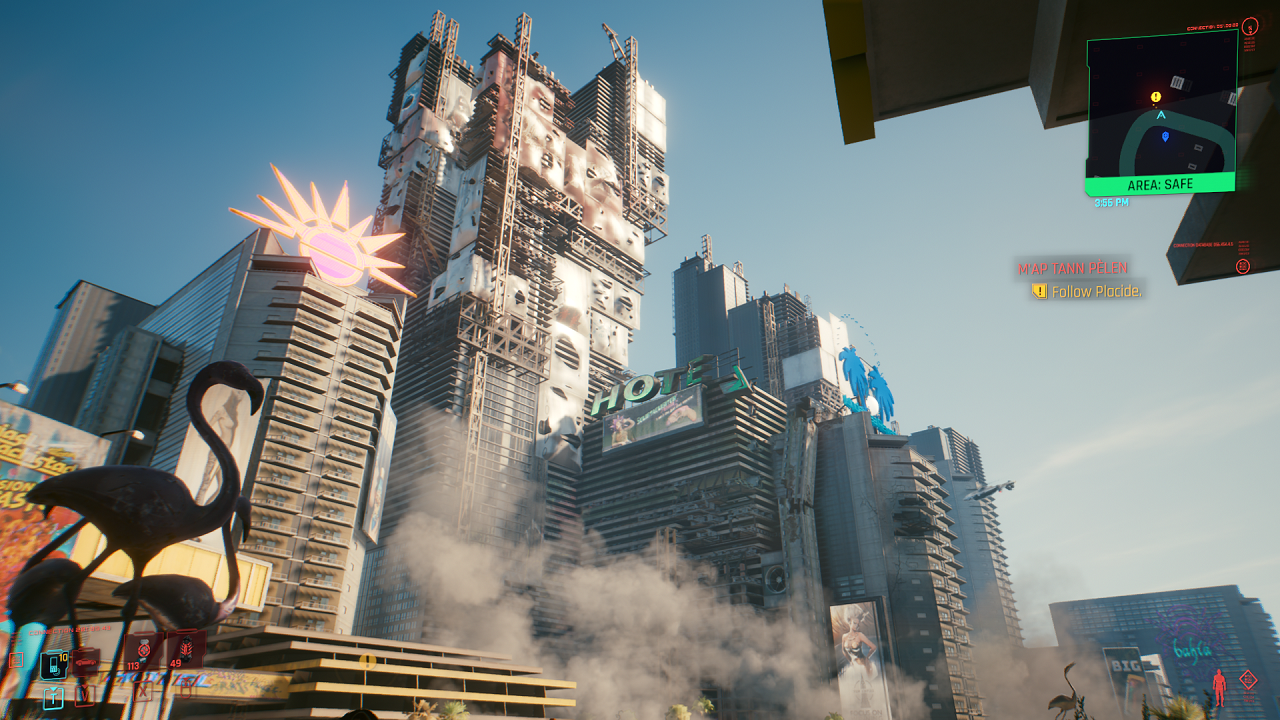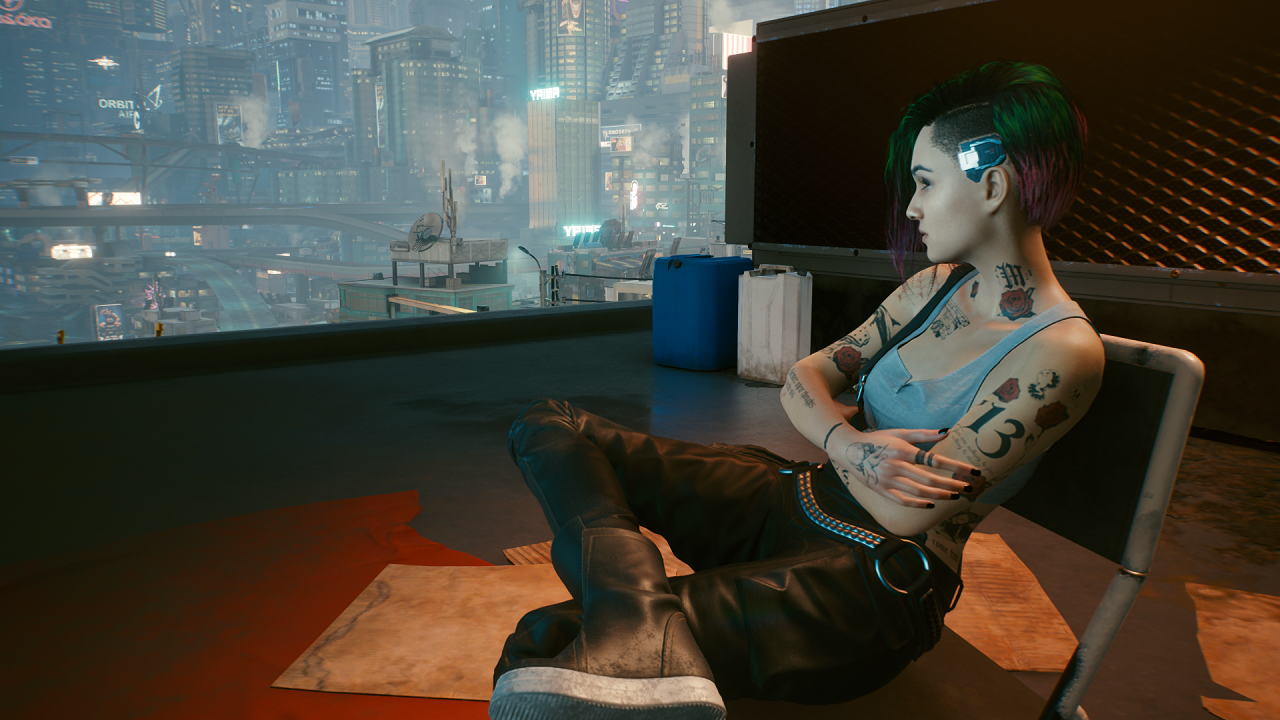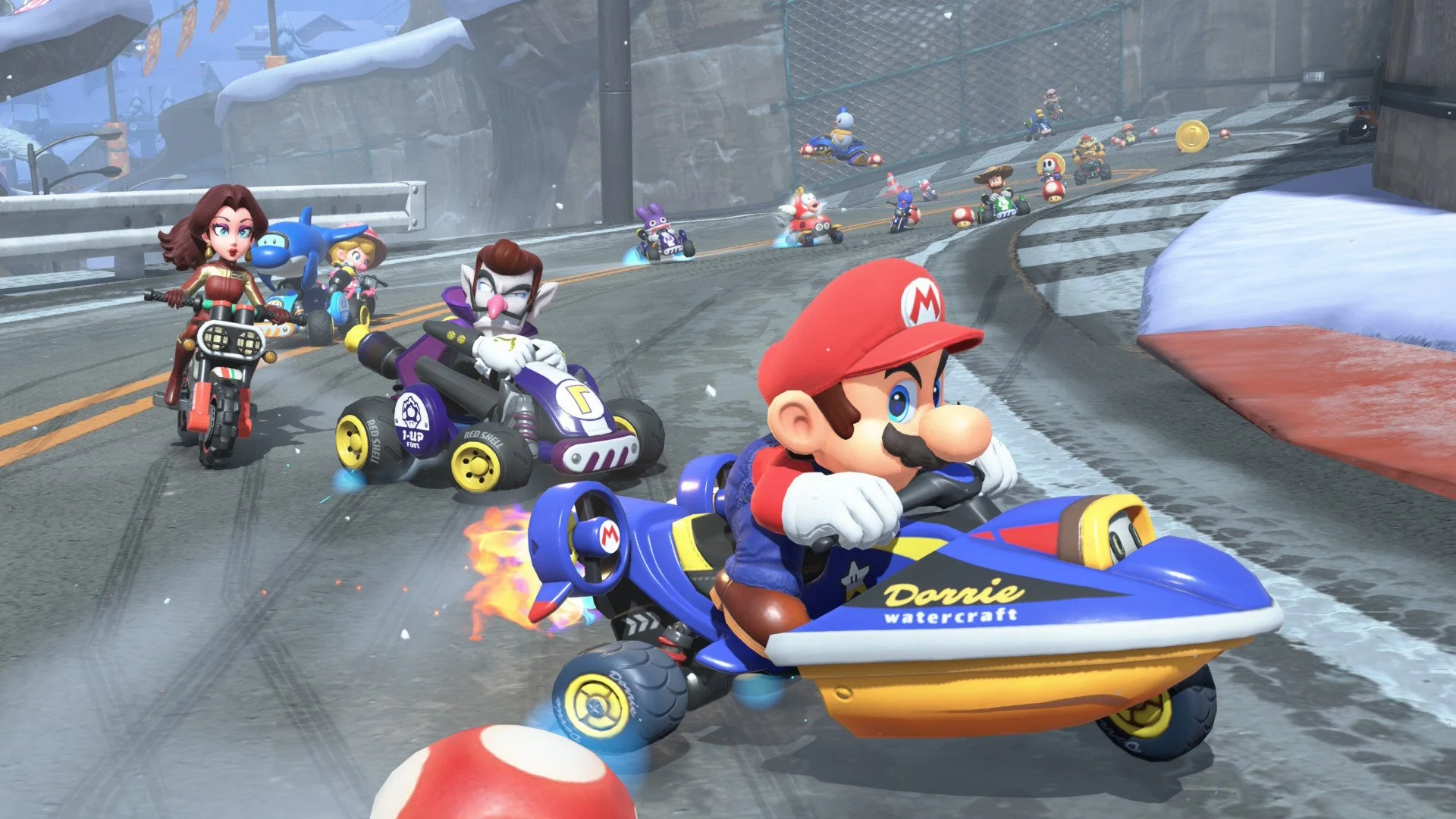Cyberpunk 2077 Review (PC) - A City Under Construction
/[this review is for the PC version of Cyberpunk 2077. You can find my thoughts on the PS4 version which focuses on it’s performance]
Cyberpunk 2077. Almost everyone was excited for CD Projekt Red’s latest RPG. Since its announcement back in 2012, the wait for an open-world experience based on the tabletop game written by Mike Pondsmith was a long one, and expectations were high beyond belief. I too was excited to delve into Night City, but it only took a few hours for me to clearly see the cracks. The longer I played, the clearer the issues became as I experienced a series of bugs and raw features that weighed down a great main story filled with interesting characters and sidequests too good to ignore.
You play as V, a mercenary driven to make it big in Night City, boasting a background based on one of the three lifepaths you chose in creating your version of the character. V is willing to do anything as odd jobs come his/her way via Fixers, and these jobs can vary from saving a person being forced to illegally treat wounded gang members to hunting down a high-profile target affected by cyberpsychosis, a deadly illness that makes him/her a danger to everyone. High risk gigs come with appropriately high rewards. 'Tis the life of a merc.
The dangers of Night City, and the characters that lead you towards it
Cyberpunk 2077’s main plot begins with V taking a job that seemed easy enough but goes sideways fast, placing V in a dire situation which I won’t spoil here. The story only kicks into high gear after the prologue, and it was intriguing to see how everything unfolded and snowballed into the conclusion of my playthrough. The characters and writing brought it all together - Panam, Judy, Jackie, Johnny, Rogue - these core characters attached to V in different ways were a treat to talk to, and I felt compelled to know more about their stories and the personal jobs that required my attention.
Cyberpunk 2077's riveting tale draws you in deeper the closer you get to the last main mission, but you can find yourself sidetracked as Night City is filled with various quests and points of interest enticing you kill time outside Cyberpunk 2077's main story, which took me roughly 35 hours to complete.
Side stories in the game world were exciting to stumble upon as they ranged from hilarious situations to messed-up scenarios that fit the world’s futuristic theme. The quality of some of these stories are on par with the main quest line, which pushed me to see what more I could find in this dense dystopian city, and what heavy choices I'd have to make in tough situations.
The storytelling in Cyberpunk 2077 is by far its strongest element, but I did find satisfaction in the game’s combat as well. The gunplay felt great in comparison to other RPGs told from a first-person perspective. The weapons you are able to wield sound and feel powerful, with recoil animations adding weight to each gun. The weaponry is a mix of modern guns, like a double-barrelled shotgun and katana blades, and futuristic weaponry. Examples of the latter are smart guns that automatically home on to your target when fired, and tech guns that require a charge before firing to add damage and bullet penetration. The plethora of weapon options left me trying whatever I could find on the ground to see if it would pair well with my current build, and signature guns sporting exotic designs were cool finds, such as Johnny Silverhand’s go-to revolver.
The V of all trades
Hacking in Cyberpunk is a tool I couldn’t live without. Hacking adds more options when dealing with situations on the fly and makes the stealth approach more tolerable in missions. Most stationary objects can be hacked, such as a vending machine to distract nearby enemies (if you have the skills to do so, that is). Even enemy humans can be compromised.
Proving Arthur C. Clarke's maxim that any technology sufficiently advanced is indistinguishable from magic, hacking fulfills the role that magic would have played in a high fantasy setting, as these hacks are easy to implement during a gunfight. Entering scan mode slows down time when targeting a hackable object, giving the player ample opportunity to trigger effects like reducing the enemy’s damage resistance, engulfing your target in flames by overheating his/her cyber implants, or resetting their optical nerves so the foe can remain blinded for a few seconds. Too bad you can’t hack systems outside combat such as stoplights…. as seen in that 'other' futuristic game.
Character progression will look exciting as each character stat has 2-3 skill trees tied to them. The Reflexes stat has perks to improve the use of blades, pistols, and rifles, while the Cool stat allows you to be better in stealth and benefit from the Cold blood buff in different ways.
Stats you invest in will also trigger more dialogue options or offer other ways to approach a location. For instance, investing in Intelligence will result in V showing off that he/she knows a thing or two about being a net runner, or increased opportunities to hack systems to steal components and money. I can already forsee a series of fun builds to play around with in future playthroughs, and I love my pistol-focused hacker with the ability to force an enemy to commit suicide.
Itemization gone dull
The itemization on the other hand is a different story, as it was a disappointing approach for an RPG. Stats found in each weapon and piece of armor have nothing unique to greatly alter a character’s playstyle, or give players hard choices when adjusting their gear. You are simply equipping better armor and weapons to get better damage and defense, and the only difference between an epic jacket and a normal one is the armor stat and the amount of mod slots available. That’s it. I rocked a legendary jacket that had 4 mod slots with no other unique properties, slapped on mods that provided a crazy amount of armor, and called it a day.
Maybe there's more exciting loot to find, but during my first playthrough, which currently clocks in at over 50 hours, I wasn’t seeing it. It was a dull loop of finding new loot with interesting stats, as all I was checking in the end was whether it did more damage or offered better protection. If not, the loot will likely be sold or dismantled into materials to be used in the game's raw crafting system, which was pretty straightforward.
The lack of an ability to customize V mid-game is odd. The moment you lock in how your character looks at the beginning, that’s it. The game has no option to further customize your appearance. Even though I'm able to change my cyberware to get a more effective pair of eyes, or arms that can also serve as rocket launchers, I can’t go to the barber shop to get a new style of hair or get a new tattoo.
Players don’t have the freedom in Cyberpunk 2077 to have fun with how cool or silly your character can be. With how itemization works in the game, it gets worse as you are naturally switching gear, which makes you change outfits every 10 minutes. Imagine your character looking slick at one point of the game, well suited to pass as a corpo executive smuck. Then, you find green neon boots that have better armor. You have to equip those… right?
For an open-world game that hosts a series of different faces and styles thanks to technology where altering your body is common practice, it’s shocking to see that this isn’t an option. But that isn't the end of Night City's limitations; as a whole, it struggles to sustain the illusion of being a living, breathing city.
A city under construction
Features to sell the setting feel like they are running at a bare minimum. NPCs roaming the streets and drivers populating the roads act one-dimensionally and react unnaturally.
The police? Their reaction to your criminal acts felt raw, as any report is instantly placed with a group of well-equipped cops that instantly spawn right in front of you. I tried to make them chase me, but they just don’t. They despawn eventually, over time.
As you roam the streets of Night City (and if you can run it in a decent setting) on the outset it’s clear that CD Projekt Red created a jaw-dropping world that would be a treat for the eyes. I played the game with a decent rig, so I was one of the fortunate souls to experience it at a smooth 60FPS at 1080p with RTX activated. Even if I bring the overall setting down a notch and turn off RTX, the game can look stunning with proper tinkering.
But visuals alone aren’t enough to make your stay in Night City a trip to remember. In one corner, you may encounter a killer angle to fully utilize the game's in-depth Photo Mode, while in the opposite corner, you might see 3 of the same NPCs walking alongside each other, doing the same animation... walking in circles.
Driving in Night City looks breathtaking as well. Billboards light up the city with neon lights and crazy ads suggesting a new cyber implant. It's great 'til you stop to see a car in front of you suddenly disappearing, or see a traffic jam occur simply because the car in front never moved. I’ve walked to my next mission only to find myself teleported a few blocks further for no reason. I’ve entered bars where the bouncer is left in the hilarious t-pose position, then to find dancers inside the club dancing to no music at all. The list goes on, as the lack of polish works to constantly detach you from Cyberpunk 2077's otherwise rich world.
It’s been weeks since launch, so you’ve seen the reports on bugs. They're not exaggerated by the public, regardless of which platform you choose. These bugs range from the usual asset clipping to getting stuck inside the world, or simply falling off it. The consistency in some of them is tiring, making Cyberpunk 2077 the perfect game to test how high your tolerance is when it comes to videogame bugs and glitches.
It’s not like I was looking for problems, but as I progressed, It got tougher to ignore these issues. I grew tired of laughing it off, as anyone might when encountering bugs or witnessing weird behaviors in a video game. Cyberpunk 2077 has a long laundry list of problems that constantly made me think, “why did they release this game in this state?” as it doesn’t feel like it was a project that had been in development for 8 years. The combat felt great, the writing is commendable, and the foundations of the game have been laid out, but everything else felt unpolished or non-existent.
It's an ambitious title that many revered as genre-defining, but that’s not the case here at all. What we have here is a world oozing with potential, but one that drowned itself in its own expectation and hype. Cyberpunk 2077 did prove that there are great stories to experience, and I had fun with the gameplay loop of going from gig to gig and shooting bad guys scattered around every dark alley of Night City, but that can only bring you so far depending on how tolerable you’ll need to be to fully enjoy the game.
In time, it will likely get better, which makes it hard to recommend, as patience shouldn’t be a requirement to enjoy a video game, especially from a studio highly praised in providing great games. If you do take the plunge, there’s greatness found deep inside, you just need to dig with your hands longer than usual to get to it.
7/10
[The score is based on the PC version of Cyberpunk 2077. Due to the significant gap in quality between the PC and console version of the game, I’ve decided to score them separately You can read my thoughts on the PS4 version of the game here, which solely focuses on the technical performance.]
Highlights
(+) Well-written stories and likeable characters
(+) Combat can be exhilarating and satisfying
(+) Visuals and sounds were breathtaking
(-) Raw features that ruined the open world and RPG experience
(-) Consistent bugs and glitches become difficult to ignore
(-) Customization is surprisingly limited
What I’ve Played
First playthrough clocked at over 50 hours.
Reached the max Street Cred level of 50
Did most of the side quests involving core characters
Reached level 32
[This review is based on the PC version of Cyberpunk 2077 bought by the reviewer. The impressions on the PS4 version of the game were based on the review copy provided by Epicsoft at launch day. ]






















Death Stranding 2: On the Beach delivers higher visual fidelity, consistent performance across the board, and a few new tricks that make gameplay more accessible, challenging, and fun. If you have the patience and come in with an open mind, you’ll be in an exclusive group of people who will struggle to describe this experience to anyone else.